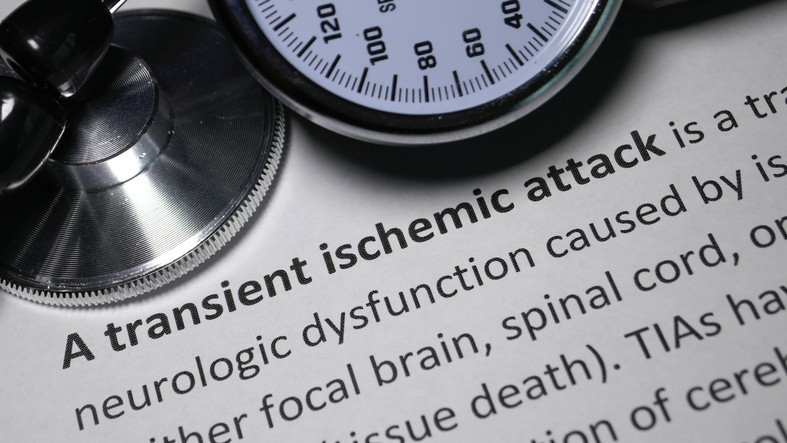
Driving with arthritis pain: Stay comfortable — and safe — behind the wheel

Daily cup of coffee may prevent afib recurrence

Gene-editing therapy lowers harmful blood fats in early study

What is EMDR therapy, and who can it help?

GLP-1 drugs versus bariatric surgery for treating obesity

Two dumbbells, three exercises, and 10 minutes

Easing the emotional burden of IBS

Modify your push-ups to meet your fitness level

What is long QT syndrome?

Stroke survivors may benefit from very low LDL levels
Neurological Conditions Archive
Articles
What you need to know about aphasia
Brain damage can cause the language disorder aphasia. It affects a person's ability to understand or produce speech. Coping with aphasia requires treatment for the underlying cause and speech therapy to learn how to communicate despite language deficits. If the cause of the aphasia improves, so may the aphasia. But many people will continue to live with some level of aphasia, especially if the cause of brain damage is a progressive disease, such as Alzheimer's.
Struggling with migraine hangovers? Read this
Migraines can last hours or days and span several distinct phases. A post-headache phase leaves as many as four out of five migraine sufferers feeling like they have a hangover. Experts recommend different approaches to help ward off lingering symptoms depending on their intensity.
Study links common virus to MS
A 2022 Harvard study suggests that an Epstein-Barr virus infection, the most common cause of mononucleosis, may trigger multiple sclerosis (MS) in some people.
A common virus may be one contributing cause of multiple sclerosis
The vast majority of diseases do not have a single cause; rather, multiple factors combine to cause a disease. Growing evidence suggests that several viruses may be triggers of multiple sclerosis, and a long-term study found evidence that an infection with a common virus can be an important contributing factor in MS.
Can ALS be caused by traumatic brain injury?
Though decades of research have suggested risk factors for amyotrophic lateral sclerosis, a specific cause remains unknown. New research studied professional football players and found that they had a much higher risk of developing ALS than men in the general population, though the study was only observational.
Transient ischemic attacks: Varied symptoms, all important
How is treatment for myasthenia gravis evolving?
Myasthenia gravis (MG) is a rare neuromuscular disease that impairs the transmission of nerve signals to muscles, causing temporary weakness of affected muscles. While treatment is complex, recently updated guidelines have added to the understanding of MG and are improving approaches to treatment.
What is COVID-19 brain fog — and how can you clear it?
We’ve all experienced the feeling of sluggish, fuzzy thinking and a lack of sharpness, possibly caused by an illness or a medication. But what if that feeling didn’t go away and your thinking didn’t return to normal? That’s the situation for some people who have recovered from COVID-19, and there can be long-term effects on other organs as well.
The hidden long-term cognitive effects of COVID-19
it is becoming increasingly clear that COVID-19 affects the nervous system along with the respiratory system. Research is suggesting that this may result in long-term neurologic damage in those who survive a COVID infection, including evidence of effects on cognitive function.
Treating neuropathy: Which medication is best?
Millions of people suffer from the burning, tingling, and numbness of a form of neuropathy called idiopathic sensory polyneuropathy. A recent study directly comparing four medications produced disappointing results, but is a step in the right direction.

Driving with arthritis pain: Stay comfortable — and safe — behind the wheel

Daily cup of coffee may prevent afib recurrence

Gene-editing therapy lowers harmful blood fats in early study

What is EMDR therapy, and who can it help?

GLP-1 drugs versus bariatric surgery for treating obesity

Two dumbbells, three exercises, and 10 minutes

Easing the emotional burden of IBS

Modify your push-ups to meet your fitness level

What is long QT syndrome?

Stroke survivors may benefit from very low LDL levels
Free Healthbeat Signup
Get the latest in health news delivered to your inbox!
Sign Up











